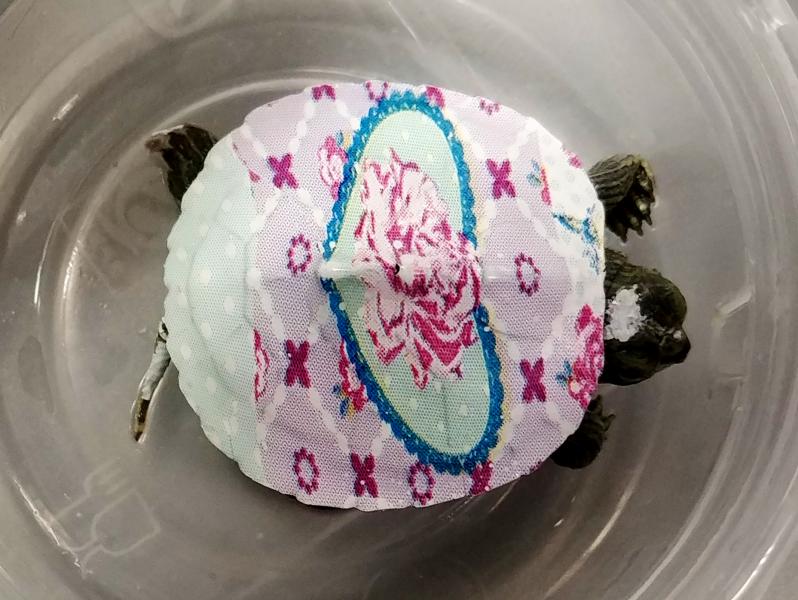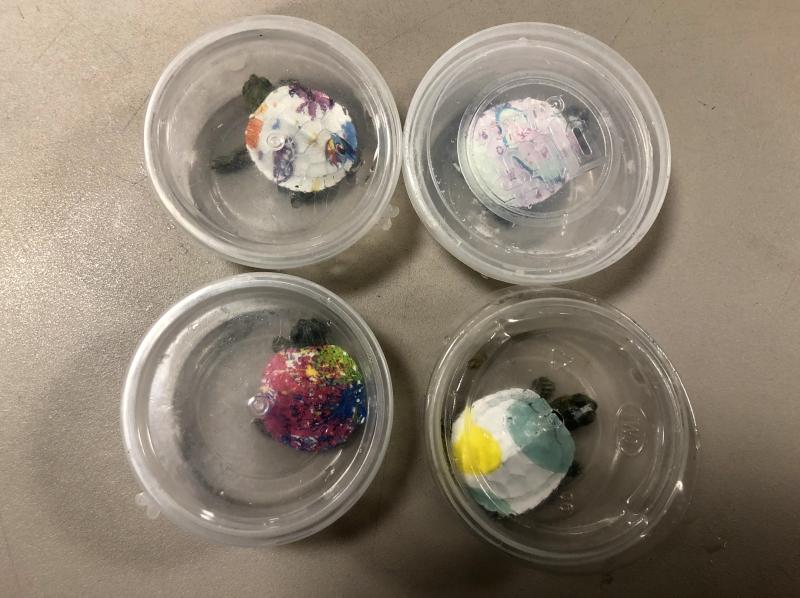USFWS determined unusual animal import needed permits, which family did not have
STERLING, Va. – U.S. Customs and Border Protection officers (CBP) and agriculture specialists have seen some interesting things in passenger baggage at Washington Dulles International Airport, but the four baby turtles with painted shells they encountered earlier this month was a new one for them.

painted shell from China.
A family of U.S. citizens returned from a trip to China September 5 and declared the turtles to a CBP officer. The officer referred the family to an agriculture inspection to determine if the turtles, each covered in painted designs, were admissible. An inspector from U.S. Fish and Wildlife Service (USFWS) asked CBP to detain the turtles for examination.
The following day, a USFWS inspector removed the paint and examined the turtles. The inspector identified the turtles to be Trachemys scirpta elegans, also known as the red-eared slider turtle. Turtles imported as pets require import permits, which the family did not possess. The USFWS issued a warning and a one-time permit to the family and released the turtles to the family.
Turtles pose public health concerns as young turtles are especially susceptible to carrying salmonella. The Centers for Disease Control and Prevention (CDC) connected a multi-state outbreak of Salmonella Agbeni infections last year to pet turtles.
“Customs and Border Protection understands the potential health risk posed by unpermitted animal imports and we work very closely with our partners at Fish and Wildlife and the CDC to ensure that suspect imports are safe for admission to the United States,” said Casey Durst, CBP Director of Field Operations in Baltimore. “CBP remains committed to protecting our nation and our citizens against all threats, including potential health and safety threats posed by infectious animal diseases.”

due to salmonella.
The family of four purchased the painted baby turtles from a street vendor. In Asian cultures, the turtle represent longevity, good fortune, fertility, vitality, and great patience.
Since 1975, the U.S. Food and Drug Administration has banned selling and distributing turtles with shells less than four inches long as pets because they are often linked to Salmonella infections, especially in young children.
CBP Agriculture Specialists have extensive training and experience in the biological sciences and agricultural inspection. On a typical day nationally, they inspect over 1 million people as well as air and sea cargo imported to the United States and intercept 352 agriculture pests and 4,638 prohibited meat, plant materials or animal products. Learn what CBP accomplishes by visiting Typical CBP Day in 2017.
Learn more about CBP’s agriculture protection mission.

